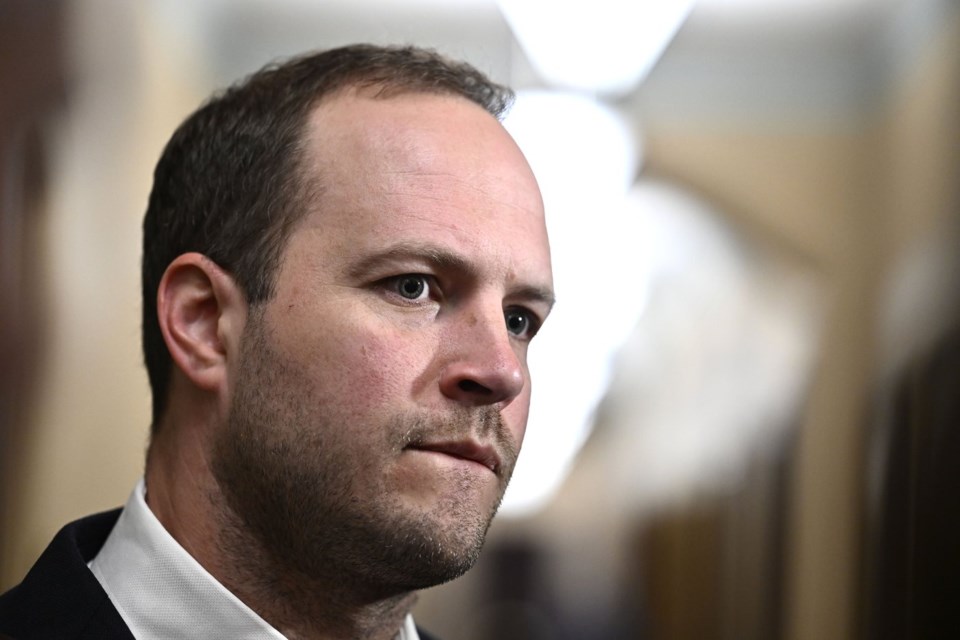OTTAWA — A House of Commons committee is scheduled to sit until midnight Wednesday as MPs study legislation that would give the government sweeping powers to drive forward major projects.
It appears Bill C-5 will be pushed through the House this week with the support of both Liberal and Conservative MPs, despite warnings from environmental and Indigenous groups.
The legislation would allow the federal government to designate projects in the "national interest" and fast-track them by granting approvals within two years.
A handful of environmental groups said Wednesday the federal government is hastily pushing the bill through Parliament and could be endangering species and sidestepping its duty to consult with Indigenous Peoples in the process.
"For all these reasons and more, we say go back to the drawing board," said Charles Hatt, climate program director with Ecojustice.
"Work with us at Ecojustice and other experts in the field of environmental law, consult with Indigenous Peoples meaningfully on a legislative approach that enables the strong, free and sustainable future that we all want for this country."
Anna Johnston, a lawyer with West Coast Environmental Law, said the bill ignores decades of experience and throws the principle of informed decision-making "out the window."
"Allowing cabinet to decide whether projects proceed before reviewing them is like building a house and then calling an engineer to ask if it's safe," she said.
Some Liberal members of Parliament say they have concerns of their own.
MP Nate Erskine-Smith told Parliament on Monday that he thinks the government is rushing the bill.
Erskine-Smith said Wednesday that while he would have liked to see the bill go through a more in-depth study, he's somewhat optimistic that the transport committee review will offer more legislative scrutiny.
"My hope is that the committee is able to make substantive amendments, but we'll see," he said on his way into the Liberal caucus meeting.
Fellow Liberal MP Marcus Powlowski said he understands the concerns raised by Indigenous and environmental groups but believes the government needs to act quickly.
"Are we going to continue to put this on hold, to tinker with it and make slight amendments? I think it's important we pass this legislation and there's always an opportunity afterwards to amend it," he said.
Liberal MP Karina Gould said the government must strike the right balance on the bill or face court challenges.
"There is a clear desire on the part of Canadians to be able to get big projects done in this country. We haven't been able to find the right balance in order to do that," she said.
Most Liberal MPs appear to be backing both the bill and the process.
Government House leader Steven MacKinnon dismissed the suggestion that there has been pushback against the bill. He said Wednesday that the legislation has "broad support across the country from premiers, as you well know, from unions, who have been very vocal, from investors in the business community."
New Brunswick Liberal MP Wayne Long said Canada is in a crisis and "we need to be bold and we need to act."
Patty Hajdu, the federal jobs minister, said the legislation does not slight the government's responsibilities toward First Nations.
"(The legislation) actually does incorporate Section 35 rights and duty to consult in a number of different spaces, including not only the set-up of the office, but also each independent project."
B.C. Conservative MP Ellis Ross said he's heard claims the bill oversteps federal jurisdiction because it contains vague language about using cabinet powers to approve national interest projects.
"So the First Nations have a valid complaint. Even the provinces in that matter have a valid complaint, that the federal government is basically using some sort of emergency power to overstep the jurisdiction of provinces," Ross said before the Conservative caucus meeting.
The House sitting is scheduled to end on Friday. The Liberal government has said it wants the bill passed before then.
— With files from Alessia Passafiume, David Baxter and Sarah Ritchie
This report by The Canadian Press was first published June 18, 2025.
The Canadian Press



